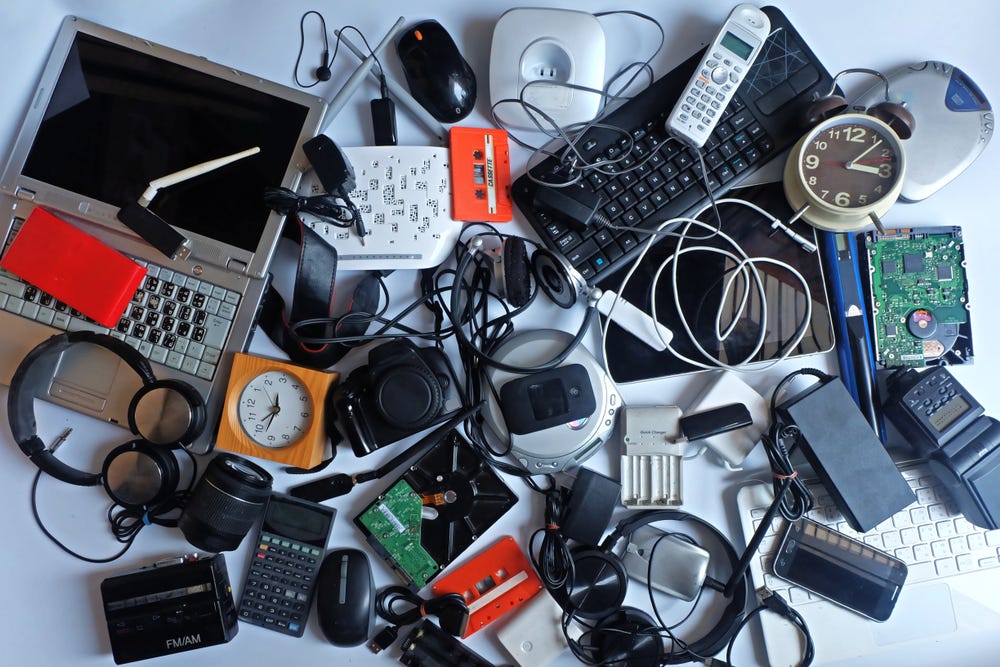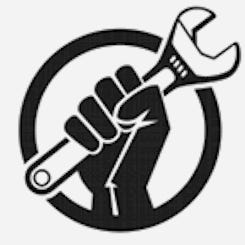Fight to Repair Daily: Friday October 14, 2022
It's International E-waste Day, highlighting the impact that trashing our electronics has. Also: BMW and Amazon are partnering to share auto data
It’s International E-waste Day – before we jump in we have two quick items for you:
🐦 You can now follow Fight to Repair on Twitter (@F2RNews) for updates on our reporting, live conversations on breaking news, and more!
Check out our latest podcast 🎙️
International E-waste Day
Today is international e-waste day – a day shedding a light on the impact that our system of consumption of electronics has. Our love of electronics comes at a cost, and our cycle of production and disposal is causing a laundry list of problems:
E-waste is not produced equally across countries, with the highest e-waste per capita coming from western, educated, industrialized, rich, and democratic (WEIRD) countries.
It is often nations in Africa and Asia that pay the price in labor, health, and geopolitical impacts caused by the consumption and use of electronics.
Repairing devices extends the lifetime of devices, meaning less e-waste.
Your tech is getting more green, but does it make a difference?
The need to bolster the use of recycled materials and complete the circular economy in tech is increasing each year. Humans generated 57.4 million tonnes of electronic waste in 2021 alone, weighing more than the entire Great Wall of China.
This paired with global shortages has put a strain on the cost and ability to get materials that are needed to make our daily tech products.
However, Josh Lepawsky, professor at Memorial University of Newfoundland, explains that it is important to not focus too much on the end result, but rather the pre-consumer stage.
“When you focus on the e-waste at the end of the picture, it blocks out what, in my view, is far more important, and that’s the uptick in mining and manufacturing. These are causing far more issues to the environment than consumers getting rid of their smartphones.”
Framework introduces refurbished program
Framework is at the vanguard of a growing movement to make electronics more repair-friendly. Some have done so by choice and others have been…nudged in that direction by looming right to repair legislation across the globe. Framework, like Fairphone, is making that a core principle of its technology, without sacrificing the final project (check Devin’s review here).
Today the company announced another step in the process of reusing consumer waste with the addition of a refurbished program that will make its laptops and components available for a secondhand discount.
The program launches today with the Laptop DIY additions, three Intel processors and an expansion card pack. Those are all currently available to customers in the U.S. and Canada. Additional parts will be added to the list, down the road. (TechCrunch)
UK households ‘hoarding’ 20.7m working IT products
There are 20.7 million unused but working IT products “hoarded” in UK homes, research shows, combined worth a possible £5.63 billion.
A recent survey showed UK households are currently holding on to 11.7 million laptops and 9.17 million tablets which could be sold or recycled. There are also 18.5 million games consoles and 6.5 million computers, the research showed.
The average UK household could sell this tech and raise £200 of “much-needed” cash during “these economically challenging times”, the researchers said. However, only a third of households are confident they know how to recycle their electricals, the survey showed, while the same number (33%) have at least one electrical device in their home that does not work and could be recycled.
Scott Butler, executive director of Material Focus, the not-for-profit organisation funded by the waste electrical and electronic equipment (WEEE) said:
“There is a huge amount of value in a household’s unwanted electricals, whether sold so that they can be reused, donated to help those in need or recycled so that the valuable materials inside our devices can be recovered and made into something new,” he added. “Electricals and tech are valuable and this value will be lost forever if they are thrown away.
BMW, Amazon deal to triple connected car data collected
A deal between BMW Group and Amazon Web Services (AWS) will triple the amount of connected car data pulled into the cloud from the German automaker’s vehicles.
AWS and the BMW Group announced the strategic collaboration to develop customizable cloud software focused on the distribution and management of data from millions of connected vehicles. The BMW Group will be the first automaker to use the software, which will serve as the basis for its next-generation, cloud-based vehicle data platform.
Moving forward, the new software will be available to other automakers, enabling them to integrate vehicle data sources, accelerate vehicle and fleet application feature development.
BMW Group’s internal domain experts—vehicle application developers, fleet managers, data scientists, and artificial intelligence, business intelligence, and development engineers—gain access to the data via a self-service mechanism that gathers streaming vehicle data, easily adds new data sources, configures access in accordance with governance policies, and monitors the quality and health of streaming sources. (Indie Garage)
Environment New York, other advocates press Gov. Hochul to sign Right to Repair
We have a growing electronic waste problem, and part of that is driven by the aggressive measures companies use to make our stuff impossible to repair. Companies benefit if we throw out more of our devices and have to buy more, but our throwaway culture is causing havoc for our environment.
Luckily, the New York legislature overwhelmingly voted in support of a bill that requires consumer electronics companies to let us fix our stuff.
Environment New York members have sent in hundreds of letters in support as have other environmental advocates. You can join by sending your own letter here. Most recently, the Story of Stuff delivered another 2,700 letters in support. The Digital Fair Repair Act ends this monopolization of repair and would be a huge step toward a more repairable future. It’s time for New York to become the leader on repair so we can repair and reduce our way out of a growing electronics waste mess. (Nathan Proctor of U.S. PIRG)






